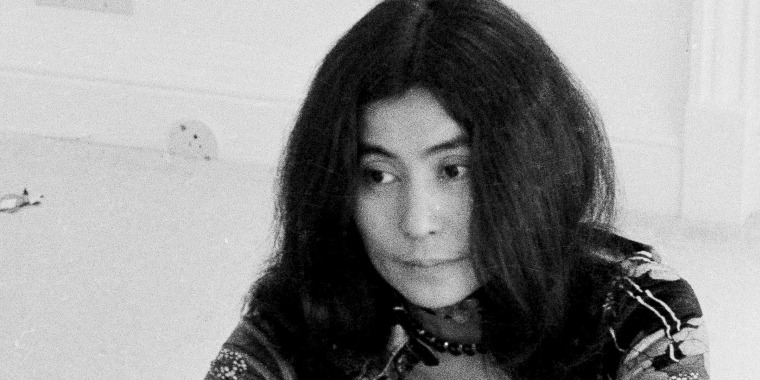Yoko Ono’s Legacy Re-Evaluated Amidst “Get Back” Documentary Release
The release of Peter Jackson’s new documentary series “Get Back” has sparked a re-evaluation of Yoko Ono’s controversial place in pop culture.
For decades, she has been blamed for the breakup of The Beatles, but viewers are now seeing her in a different light.
Experts argue that this reconsideration is part of a larger movement examining the misrepresentations and treatment of Asian women.
Although Ono is not the main focus of the eight-hour series on Disney+, her appearance has led many to question the narrative surrounding her role in the band’s dissolution.
Critics are calling for a collective apology towards her after witnessing her behavior in the documentary, which director Peter Jackson described as “benign.”
However, experts emphasize that this moment of reflection must also address the sexism, racism, and xenophobia that fueled Ono’s vilification.
Throughout her relationship with Lennon and even after his death, Ono faced relentless demonization in the press and by Beatles fans.
Descriptions of Ono often included derogatory stereotypes and racist slurs.
She was mocked for her Japanese accent, and fans would insultingly demand that she return to her own country.
These harmful narratives persisted for years, even making their way into popular culture, such as an episode of “Family Guy” where Ono is compared to a supernatural being from a Japanese horror film.
Experts argue that the vilification of Ono was rooted in demeaning stereotypes about Asian women, exacerbated by the political climate of the time.
Ono’s refusal to conform to these stereotypes and her resilience in the face of criticism were powerful acts of resistance.
The “Get Back” docuseries follows The Beatles during the creation of their 1970 album “Let It Be,” and Ono is shown in the background.
Despite tabloid portrayals of her as a manipulative force within the band, the documentary depicts her engaging in mundane activities like knitting and reading the newspaper.
She does not interfere with the band’s affairs or express opinions about their decisions.
In recent years, there has been a growing recognition of the sexist treatment Ono endured in the press.
Women are often blamed for men’s failures while receiving little credit for their contributions.
However, Ono faced an additional layer of discrimination due to her Japanese heritage.
Other long-term partners of the band members, who were white, were never held accountable for the group’s breakup.
Ono herself acknowledged that sexism and racism played a significant role in the accusations against her.
Ono was also frequently labeled a “dragon lady,” a trope that portrays Asian women as conniving and manipulative.
This stereotype is often used to undermine their power and agency.
At the height of The Beatles’ popularity, Britain was experiencing a resurgence of nativism, which further positioned Ono as an outsider despite her years living in the country.
The relentless attacks on Ono’s appearance, with media outlets repeatedly describing her as “ugly,” also had racist undertones.
Ono’s avant-garde style and Japanese features did not fit the European standards of beauty, making her a target for comparison to the other band members’ partners, who were considered more conventionally glamorous.
Ono’s passionate relationship with Lennon and her refusal to conform threatened societal expectations and racial hierarchies.
Her status as an immigrant who refused to pander or assimilate infuriated those who felt she was encroaching on their space and privilege.
While some argue for a reframing of Ono’s place in history, it is crucial to avoid falling into other stereotypes of Asian women, such as the submissive and passive archetype.
Ono was anything but quiet and uninvolved, and she embraced her strength and power rather than conforming to societal expectations.
Ono’s insistence on sharing space and challenging the narrative of an all-white, all-British Beatles lineup is a powerful statement.
Her presence disrupts the ownership of history and highlights the importance of representation.
As society re-evaluates Yoko Ono’s legacy, it is essential to recognize the impact of sexism, racism, and xenophobia in shaping public perception.
By understanding the complex factors that contributed to her vilification, we can move towards a more inclusive and accurate understanding of her role in the history of The Beatles.































